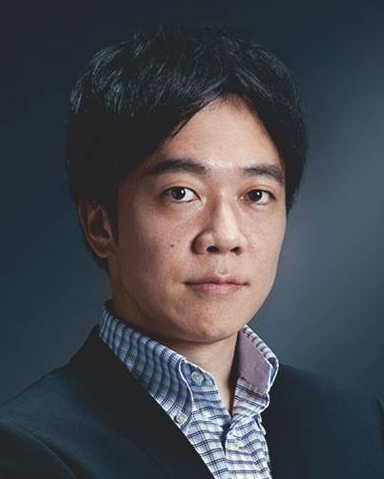Session 7: Panel Discussion – RTOS for Autonomous Machines
10:30 – 11:30, Friday, May 21, 2021 (CDT)
Moderator: Nan Guan, The Hong Kong Polytechnic University

Shinpei Kato
Associate Professor, The University of Tokyo
Founder and CTO, Tier IV, Inc.
Shinpei Kato is an associate professor for the Graduate School of Information Science and Technology at the University of Tokyo, and the founder and CTO of Tier IV, Inc. He also serves on the Chairman of the Autoware Foundation. Previously, Shinpei was an associate professor at the Graduate School of Information Science, Nagoya University from 2012 to 2016. He was also a postdoctoral scholar at Keio University, the University of Tokyo, Carnegie Mellon University, and University of California, Santa Cruz. His expertise includes computer architectures and operating systems for embedded and real-time systems as well as parallel and distributed systems.

Andrei Kholodnyi
Principal Technologist, Wind River Systems
Andrei Kholodnyi is a Principal Technologist in the office of the CTO where he drives a technology vision in the areas of mobile robotics, intelligent edge, dependability, and TSN. He has more than 20+ years’ experience in embedded software development and served as a Wind River representative in various alliances and standardization bodies – ROS2, AUTOSAR, GENIVI, and PICMG. He is currently a chair of the real-time ROS2 working group and a member of the ROS2 TSC. Andrei joined company in 2005 and has held roles in various areas, including engineering, services, and automotive, technology office. Prior to joining Wind River, he was a senior staff software engineer at Motorola Computer Group and Force Computers and a research scientist working at various European laboratories, where he developed expertise in complex embedded control and data acquisition systems. He holds a master degree from Moscow Engineering Physics Institute.

Shaoshan Liu
CEO, PerceptIn
Dr. Shaoshan Liu is founder and CEO of PerceptIn Inc, a company focusing on providing visual perception solutions for robotics and autonomous driving. Shaoshan Liu’s technical research focuses on Autonomous Driving technologies and Robotics. He has published 80 research papers, 40 U.S. patents, and over 150 international patents on autonomous driving technologies and robotics. He is a senior member of IEEE, a Distinguished Speak of the IEEE Computer Society, a Distinguished Speaker of ACM, and a founder of the IEEE Special Technical Community on Autonomous Driving Technologies. Dr. Shaoshan Liu received Master of Public Administration (MPA) from Harvard Kennedy School, Ph.D. in Computer Engineering from University of California, Irvine.

Jan Staschulat
Research Engineer, Robert Bosch GmbH
Jan Staschulat received his PhD in computer science at Braunschweig Technical University in the field of performance analysis of embedded real-time systems. After three years of industial reasearch at NXP Semiconductors about media-streaming applications on multi-core architectures and three years of series development of safety critical applications at WABCO, he joined Bosch Research sex years ago. Since then he has been applying real-time concepts to mobile robotics. Currently he is developing real-time and deterministic scheduling approaches for ROS 2 and contributes to the EU-funded project micro-ROS, which puts ROS 2 on micro-controllers.

Rich West
Professor, Boston University
Rich West is a Professor in the Computer Science Department at Boston University. He works on the development of real-time and embedded operating systems, addressing issues concerning safety and predictability. He has studied real-time scheduling and resource management, cache-aware performance of multicore processors, and machine virtualization, amongst other topics. He is currently leading the development of the Quest real-time operating system for multicore processors. Its sister system, Quest-V is a partitioning hypervisor, or separation kernel, that provides efficient, predictable and safe execution of sandboxed guest systems. Quest-V is currently being developed for use in a production vehicle management system, called DriveOS, targeting electric vehicles.
